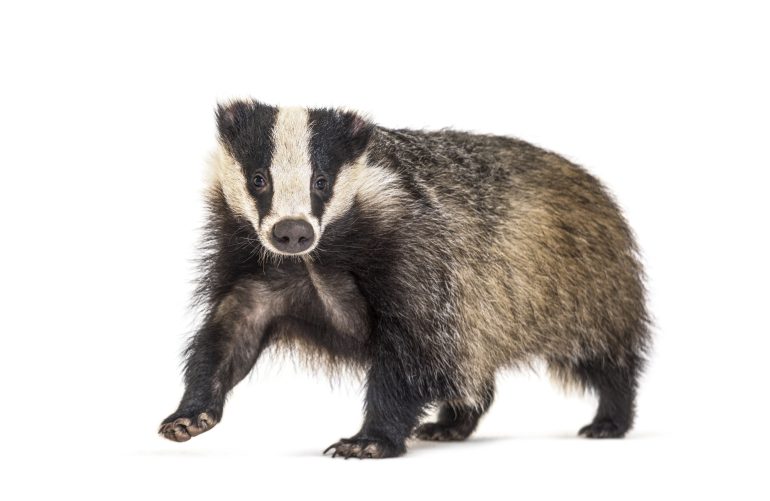Dutch life in many areas has been brought to a standstill over the past few weeks, not by wind, water or any of the other natural hazards one might expect in the Netherlands, but by common European badgers. The country’s 7,000 or so badgers have been causing major delays along rail lines throughout the country by digging into and under raised embankments, often causing structural weaknesses and preventing trains in many areas from running. More than 10,000 commuters have been impacted by badger-related delays, leading ProRail, the organization responsible for maintaining the nation’s rail infrastructure, to request permission from the Dutch government to take several badger-remediation steps. ProRail has stated it can no longer guarantee network safety on some routes due to badger activity. Trains on several routes, including between Workum and Stavoren and Den Bosch and Eindhoven, have been temporarily suspended due to safety concerns.
Badgers live in underground ‘setts’, made of linked tunnels and several underground rooms. Rail embankments are particularly attractive to badgers, as they’re slightly raised and often made of sand, making them almost perfect sett-building environments, particularly in flat locations like the Netherlands. The sett under the tracks near the Frisian town of Molkwerum consists of several tunnels and entrances. Authorities fear a passing train may trigger a collapse due to the underground den’s size and location.
ProRail has identified approximately 40 areas of concern related to the Molkwerum sett – locations where badgers have dug either under or close enough to rail lines to cause safety concerns. Repairs are usually costly and often only provide a temporary fix. The badgers usually just return to the area and rebuild. ProRail’s options are currently limited as badgers are protected under the Nature Conservation Act, which prevents wild animals from being disturbed or removed from their natural environments.
ProRail submitted an application for a waiver of the law to the Netherlands Enterprise Agency (RVO) in late March, asking permission to proceed with a solution that involves relocating the badgers and installing fencing to protect vulnerable areas. The plan calls for constructing an artificial nest for displaced badgers in a safe place away from rail lines and embankments. The proposal also envisions an underground tunnel to give wildlife a safe way to navigate around fenced-off areas. Obtaining a waiver from the Nature Conservation Act usually takes approximately 13 weeks from filing to approval. RVO representatives have already begun evaluating ProRail’s request, a process that involves both legal and scientific reviews. John Voppen, ProRail’s CEO, has asked for the application to be expedited due to the shutdown’s disruption to travel and commercial activities. ProRail and the Ministry of Infrastructure and Water Management are working together in an effort to speed up resolution.
Das en Boom, a conservation organization dedicated to badger welfare, stands ready to assist ProRail with any issues that arise while building fences or relocating the animals. Jaap Dirkmaat, spokesman for Das en Boom, suggests the situation calls for immediate action to prevent a catastrophic infrastructure failure. According to Das en Boom, ProRail’s current attempts to address the problem are too little too late. “We saw this coming four years ago. We sent warnings to Rijkswaterstaat, ProRail and the water authorities,” says Dirkmaat. “Badgers simply don’t belong around infrastructure,” suggests Dirkmaat, as they’re tenacious diggers and expand their setts over generations, which can lead to issues such as dyke and rail line failures.
Badgers contribute to healthy ecosystems by limiting insect and rodent populations. Hunting during the early 20th century drastically reduced the badger population in the Netherlands. In 1900, there were around 12,000 badgers in the Netherlands. That number had dropped to 1,200 by 1960, where it remained until 1980 when the population began to rebound. They’re widespread in South Limburg and eastern parts of the country.
Written by Lorre Luther
